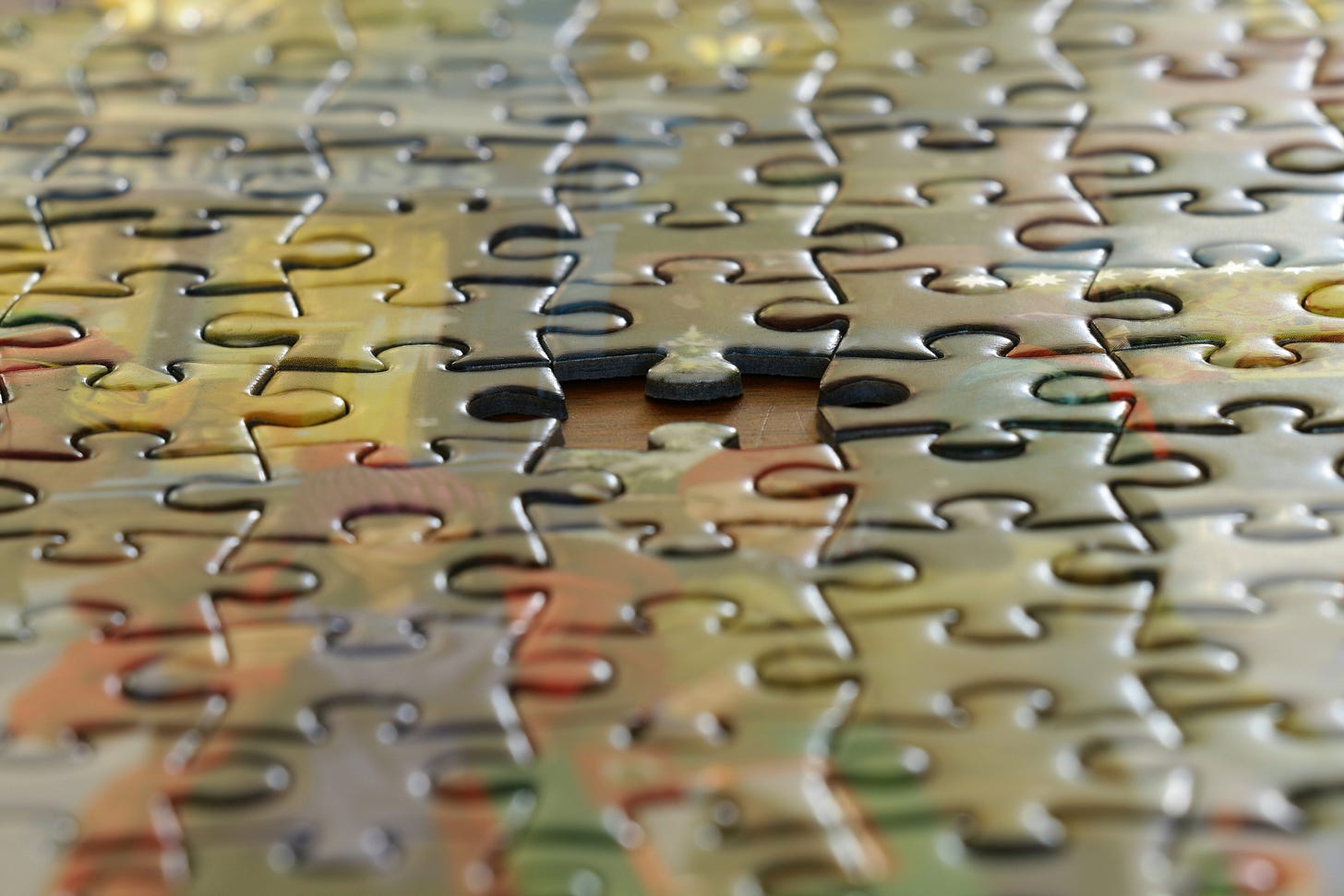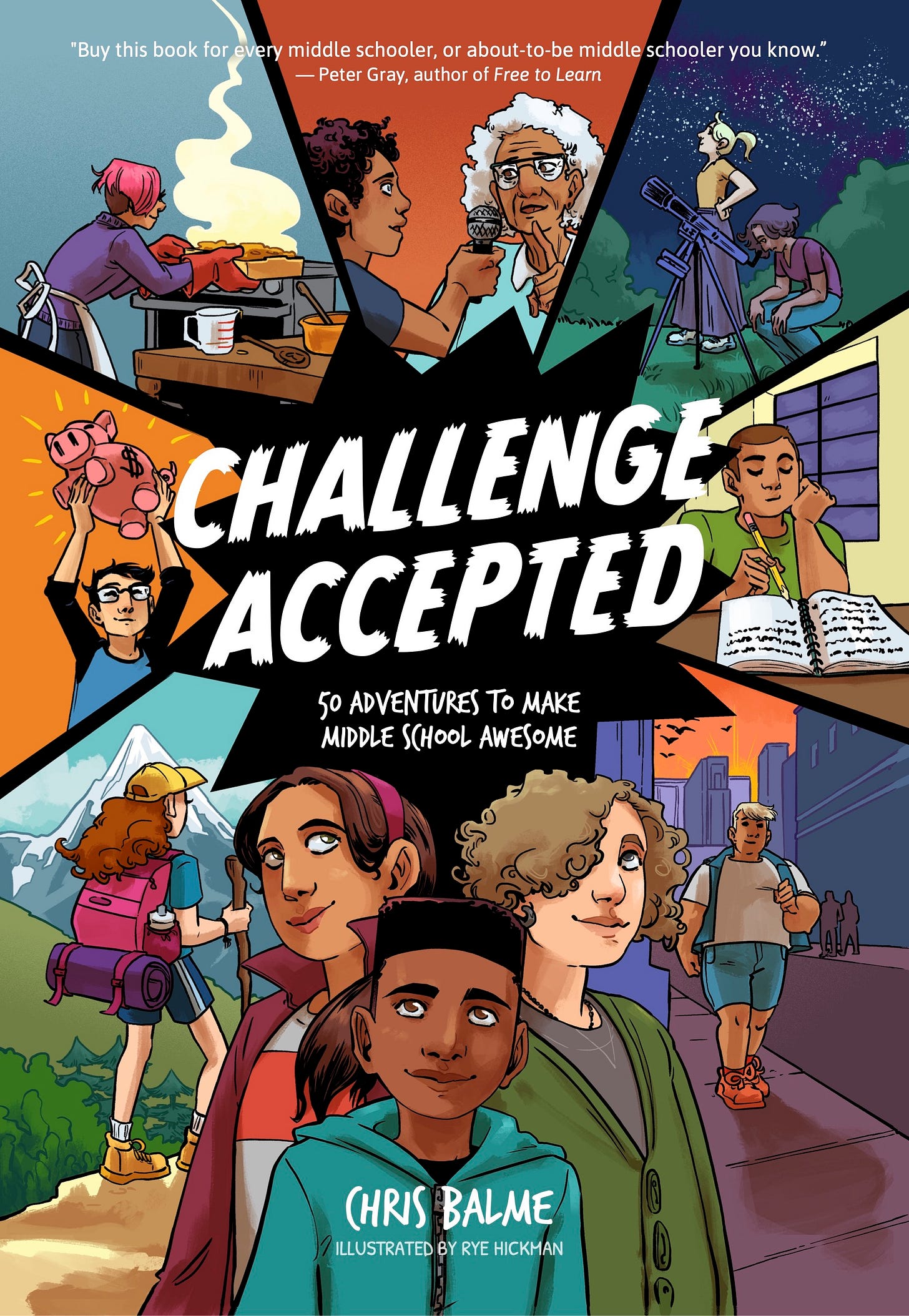I was on a hike with a dear friend the other day, and the conversation soon arrived at the comical and often bewildering nature of our 7 year olds. We laughed at their latest curious habits, commiserated about our parenting struggles, and generally marveled at the surprising things our kids do. Who knew?!
Wait a minute…
A thought hit me that had been growing in the back of my mind. What do you mean, “who knew?!”
Different stories began to come together. I thought of all the 20 and 30-somethings I know, those without kids of their own, who have no idea what to do with children and find them intimidating. I realized that even though I had spent a lot of time with middle schoolers before I became a parent, I had spent close to zero time with young children. Memories flooded back of my oldest child’s first day after birth, pressing the button to summon the nurse because I had no idea what to do when she was crying. I was truly clueless.
In fact the more I thought about it, the more I realized that hardly anyone I know — other than teachers — spends meaningful time with kids before having their own. No wonder parents often feel so bewildered and reactive! Surely, in the history of our species, this situation is strange in the extreme.
A puzzle piece clicked into my place for me. I’ve been thinking about how we can help parents enjoy their adventure more, in order for kids to have a better childhood. I’ve written recently about one other key piece — shifting out of our isolated nuclear-family mode of living, which puts unrealistic (to say the least) burdens on parents. Here was another result of that lifestyle, and of the ways our communities are designed — we live in a world where most parents become child-raisers with zero prior experience. It sounds obvious, but I think it’s one of the strangest things possible.
In prior generations, by the time someone became a parent, they had likely witnessed kids all around them for some time, had seen their developmental stages, their typical challenges, and had lent a hand. Fast forward to today, and for all of our advances, we send the parents of our society into their family adventure with close to no preparation. To state the obvious, when parents are then shocked by how their kids behave, our parenting becomes filled with anxiety and reactivity. And of course that shows up in schools as well.
This leads to a mistake I’ve often seen and made myself: treating kids like little adults. It’s a developmental misunderstanding, often due to lack of experience — but it can lead to panic, moralizing, or punishments when kids make developmentally normal mistakes, like lying. Or take many classic middle school behaviors, like a joke in bad taste or the repeating of a gender stereotype. I’ve seen adults leap down kids’ throats for these, bordering on pathologizing them, as if the behavior was made by an adult rather than someone testing out ideas and language they had just seen.
(To be clear, I’m not suggesting you can let these statements slide — we just need to approach with curiosity and an expectation that such mistakes are natural as kids use more complex language and witness a bigger social world).
So what am I saying here? Something blindingly obvious I think, but so common that we may not notice it. Some of the struggle parents face today — like the near-universal stress and frequent burnout described especially by parents of young kids — is not the natural state of parenthood. It exists in large part because we’re parenting without a village, as I wrote about recently. And one result of parenting without a village is that we parent without experience. It’s like taking an intensive job requiring exceptional skills, but with absolutely zero training. The stress is not inherent to the job, it’s a result of under-preparation.
If you’re with me, it follows that one of the best things we could do for future generations of kids AND for the current generation of parents would be to get more non-parents involved in child-rearing. I don’t mean as hired help. That would make this out-of-reach economically for most, and doesn’t spread that child-rearing knowledge around widely. I mean breaking out of nuclear-family mode. Inviting others in. Grandparents yes, but especially younger people — teenagers, 20-somethings — who can apply this childrearing knowledge one day (and who our kids think are extra cool).
I think this leads to a few ideas for how we might improve things. As always, forgive me for being the eternal optimist here; I recognize these are not simple changes. Here goes:
We could design ways to bring teenagers and 20-somethings into more contact with the young kids around them. For example, I’ve seen middle schools that have daycares built in, as both a service to local families and a way for the older kids to have meaningful work. And for those 20-somethings, here’s a crazy idea. Typically, at least in American culture, holidays are a time you gather with your friends and/or family. If you’re in your 20s, that often means your fellow 20-somethings or your parents, perhaps aunts/uncles, grandparents, etc. Notice what’s missing? The people who are raising young kids. So: what if we brought back community holidays? Gatherings based entirely on physical proximity. And ones that can bring together the 20-somethings, the parents of young kids, and the kids themselves.
We could put energy into “mini civic institutions” — like a community garden. Places where people can regularly hang out, across ages, and simply gain exposure to each other. Events can count as institutions too, if they’re regular and repeated — like rallying people for a cleanup day, or a barn-raising style work event. And of course there’s food. Did we have to stop harvest festivals just because most people are not employed in agriculture anymore? I’m not aware of any rule against bringing them back.
We could give kids more access to the community, versus keeping them (from the best of intentions) in supervised school or after-school spaces all day. Then other adults would have more experience with kids, and thus more understanding, and kids would clearly benefit from witnessing adults at work. One step toward this could be the Open Door Days that I wrote about earlier — ways for adults to invite adolescents to explore their workplaces, without pressure for career choices, but simply to know more about what adults do all day, eliciting their curiosity.
If it seems like I’m pointing to something unbelievably obvious — we become parents with no experience! — it’s with the goal of showing it does not have to be this way. And it was not always this way. I don’t mean to glorify past versions of our society, which had more than their fair share of problems. I’m looking forward: we can shift our communities ever so slightly toward more communal involvement in child-rearing. And when we do that, we begin to spread the simple knowledge of what kids are like.
I think back to that hike with my friend, puzzling over our children’s behavior. I’d like to imagine my kids walking on that redwood trail as parents themselves, and rather than scratching their heads at what their kids do, instead they share a knowing laugh — they’ve seen this stage coming, they know more or less what it’s about, and they’re enjoying their children being in it, rather than reacting or worrying. I know it’s not a black-and-white thing, and kids will always surprise us. But when we meet children with more experience, and more community, we can relish their adventure so much more. And so will they.
In Other News…
My new book, Challenge Accepted: 50 Adventures to Make Middle School Awesome, is almost ready to launch! It will be available to buy everywhere books are sold on August 15th. You can pre-order it on Amazon here, Bookshop.org here, and many other places. I can’t wait to share this with you all.
This fall, before I jump into my next writing project, I’ll be focused on getting the word out about the new book through speaking events, podcasts, articles, and more. If you know of a good place where I could spread the word, I would welcome your advice or invitations — please drop me a note on my website or via a comment here. Thank you!





Parents are just older kids. No wonder they get overwhelmed. All good ideas here, especially the community activity ideas.
Very fun watching you open old/new doors one at a time and never become one dimensional in your perceptions or your language. Many knowing smiles from this reader!